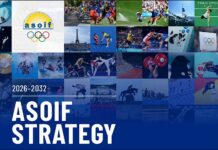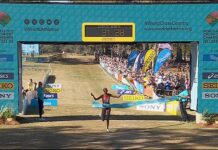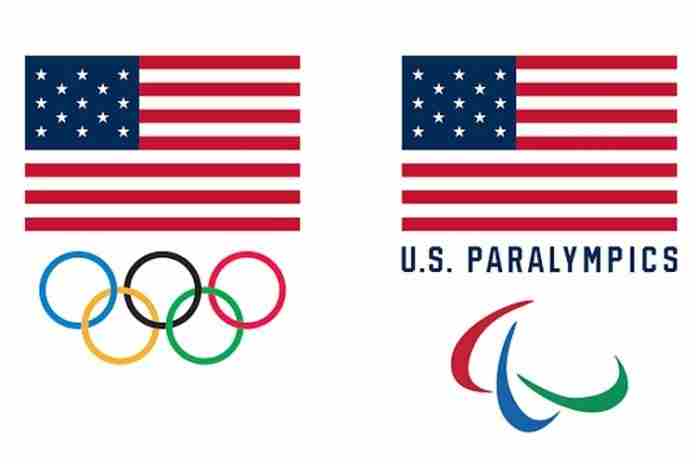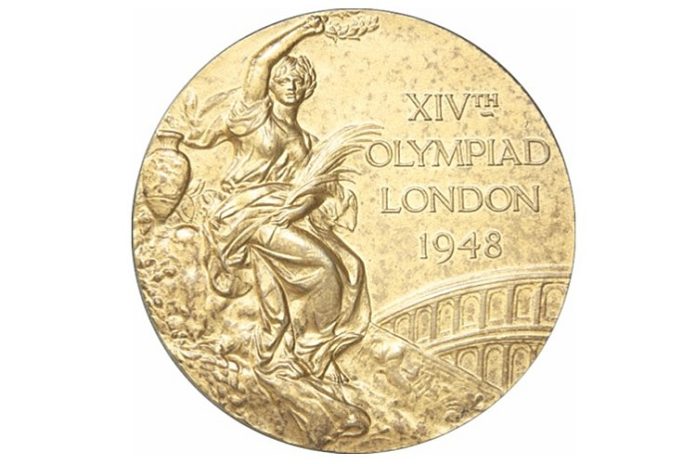(★ BRAVO to our 45 donors, who have covered 77% of our site costs for services for the first six months of 2022. If you enjoy this coverage, please donate here. ★)
● Plus: Russia: Poll shows not much outrage about athlete bans = World Games 2022: Birmingham organizers to help fund Ukraine participation = Olympic Winter Games 2030: Spanish coordinating regional cooperation on bid = Athletics: ‘84 200 m silver winner Baptiste passes at 59 = Swimming: NCAA head Emmert sees no change on transgenders = SCOREBOARD: Swimming: France’s Marchand, Americans Curry
& Finke star at NCAA men’s champs ●
Finally getting some time to breathe after fielding teams for the Olympic Games in Tokyo and the Beijing Winter Games, the U.S. Olympic & Paralympic Committee’s board of directors met last week, with future programs already needing attention.
During a Monday briefing with reporters, USOPC Chair Susanne Lyons explained that the 2030 Winter Games candidature of Salt Lake City had been stalled by the back-to-back Games in 2021 and 2022, in addition to the Covid issues still dogging major events around the world.
But, the process is starting up again:
● A technical team from the International Olympic Committee is expected in Salt Lake City in April, to see the proposed facilities – all existing and in use – for the 2030 Winter Games, and to better understand the concepts for financing and organization.
● A USOPC and the Salt Lake City-Utah Committee for the Games plan to visit the IOC in Lausanne in June for more discussions, a session that had been hoped for last November or December, but is only now possible.
Salt Lake City is a front-runner, along with Sapporo (JPN), the 1972 host city, with bids from Canada (Vancouver) and Spain (Pyrenees-Barcelona) still in the organizing phase.
Discussions between the USOPC, the Salt Lake City team and the Los Angeles 2028 organizers are continuing, especially in the context of how the domestic sponsorship program could be expanded to include opportunities for more continuity, with back-to-back Games in 2028 and 2030.
Lyons said that no selection is expected in 2022 and that a decision should be made by mid-2023.
Also coming in the future may be a change in the way that Paralympic sport is organized in the U.S., with the idea being to have Olympic-sport National Governing Bodies taking on responsibility for Paralympic programming as well. USOPC chief executive Sarah Hirshland noted that there is no definitive timeline for this effort: more of a concept than a plan, but which would relieve the USOPC of some of the direct governance responsibilities it currently has for many of the Paralympic sports.
This is a project which is being seen worldwide as well, for example, with the International Paralympic Committee discussing a transfer of international governance of elite-level para-skiing with the Federation Internationale de Ski (FIS). In the U.S., this could be a powerful boost for individual Paralympic sports, but the question of added NGB funding is sure to come up.
Looking back at Tokyo and Beijing, Hirshland noted the excellent results of the U.S. teams in both the Olympic and Paralympic Games. She made a special point of the outstanding work of the USOPC medical team, with just two Tokyo positives and nine in Beijing, and of the 11 total, only three were athletes.
That’s pretty impressive.
There has been no further word on the resolution of the Figure Skating Team event from Beijing, where the U.S. skaters placed second, while the winning Russian team may be disqualified if the initial doping positive for Kamila Valieva is confirmed. The matter is being reviewed by both the Russian Anti-Doping Agency and the World Anti-Doping Agency and the U.S. can only wait for a resolution.
A major celebration of the Tokyo and Beijing Olympic and Paralympic teams – possibly over 800 athletes in total – is being planned for May at the White House in Washington. D.C. The first in-person USOPC Assembly in a while is also being planned for 22-24 June.
The Board also had extensive discussions about sport integrity, including doping and the expanding questions around transgender athletes, but regarding the latter, the rule-making authority is in the hands of the International Federations.
Lyons underscored that while it’s almost back to business-as-usual, there is a lot of business to be done.
Rich Perelman
Editor
≡ THE 5-RING CIRCUS ≡
● Russia ● According to a new poll reported by the Russian news agency TASS, the Russian public may not be all that worked up about its athletes being barred from international competitions.
While 91% of the 1,600 respondents in the 21 March survey said they were aware of the widespread athlete bans in response to the “special military operation” in Ukraine, only 32% thought the invasion was the sole reason and 62% thought Russians would have been banned in any case, based on prior scandals.
Moreover, just 15% said Russia should fight for restoring athlete’s competitive opportunities and 24% thought Russia should hold its own competitions and invite other countries. Less than half – 48% – suggested Russia should do both.
● XI World Games: Birmingham 2022 ● The International World Games Association has agreed with the Birmingham organizers of July’s World Games to share a portion of the ticket and merchandising revenue to support the Ukrainian delegation.
Some 103 Ukrainian athletes have qualified for the World Games, but getting to Alabama is not going to be easy. IWGA President Jose Perurena (ESP) said Monday, “I am happy to have received great support for this idea. This is also about using the money to rebuild the bombed sports venues after the war, which hopefully will end soon.”
If possible, funding could allow some Ukrainian athletes to come to the U.S. early for training prior to the Games; the IWGA will also ask for assistance from the International Olympic Committee’s Olympic Solidarity fund.
● XXVI Olympic Winter Games: 2030 ● The Spanish candidature for 2030 was reported by local media to have become better formalized, in an agreement between the regions of Aragon and Catalonia.
Friday’s “technical agreement” placed biathlon, cross-country skiing, figure skating, and speed skating in Aragon, with the remaining events in Catalonia, mainly in Barcelona (ice events) and the Pyrenees Mountains (skiing).
The Spanish Olympic Committee coordinated the discussions and is liaising with the Spanish government. A referendum on the bid is expected to be held in both regions this summer.
● Athletics ● Sad news with the confirmation of the 24 March passing of 1984 Olympic 200 m silver medalist Kirk Baptiste, at 59.
He was the NCAA 200 m champion in 1984 and 1985 for the University of Houston and was runner-up to Carl Lewis at the 1984 Olympic Trials and at the Los Angeles Games, posting a best of 19.96.
Baptiste was twice the U.S. national champion, winning the 100-200 m double in 1985; he had a 100 m best of 10.11.
● Swimming ● SwimmingWorld.com reported on a letter sent by NCAA President Mark Emmert in reply to a women’s swimming activist concerned about having transgender women – such as NCAA 500-yard champion Lia Thomas of Penn – swimming against biological females.
Emmert wrote that the association plans no changes to the approach it used with Thomas, including:
“As the top governing board of the NCAA, the Board of Governors firmly and unequivocally supports the opportunity for transgender student-athletes to compete in college sports.
“We understand there are differing views on transgender student-athlete participation in sport. The NCAA’s current policy is anchored in the evolving science on this issue and in the sport-specific policies of the U.S. Olympic and Paralympic Committee’s national governing bodies, of international federations and of the International Olympic Committee when relevant. Further, the policy provides the Board of Governors and the Committee on Competitive Safeguards and Medical Aspects of Sports the opportunity to review and approve each policy to ensure it aligns with the core values of the NCAA. The resulting sport-by-sport approach preserves opportunities for transgender student-athletes while balancing fairness, inclusion and safety for all who compete.”
In Thomas’s situation, USA Swimming introduced fairly stringent transgender regulations on 1 February – which would not have allowed Thomas to compete – but the NCAA ignored them, and maintained its prior eligibility standards that did allow Thomas to swim.
≡ SCOREBOARD ≡
● Swimming ● The men’s NCAA Championships concluded last Saturday in Atlanta, Georgia with Cal winning the national title, 487.5-436.5 over Texas, with Florida (374) third.
The individual standout was Arizona State freshman Leon Marchand, a Tokyo Olympian for France, who won the 200-yard Breaststroke and the 200-yard Medley, plus a second in the 400-yard Medley.
The other double winner was sprinter Brooks Curry (USA-LSU), who took the 50-yard Free and 100-yard Free. Double Olympic distance gold medalist Bobby Finke of Florida, won the 1,650-yard Free for the second straight year.
You can receive our exclusive TSX Report by e-mail by clicking here. You can also refer a friend by clicking here, and can donate here to keep this site going.
For our 832-event International Sports Calendar for 2022 and beyond, by date and by sport, click here!






















